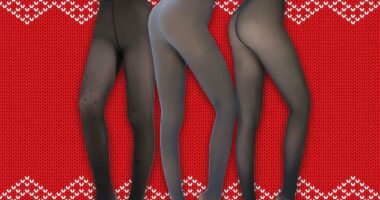Share this @internewscast.com

With the festive season approaching, fire officials are advising people to exercise caution when setting up Christmas trees to prevent fire hazards. They emphasize the importance of selecting fresh trees, positioning them safely, and ensuring they are well-watered.
WASHINGTON — As the holiday spirit fills homes with twinkling lights and festive decorations, fire officials are cautioning families to be vigilant with their Christmas tree arrangements.
Although Christmas tree fires are rare, they pose significant dangers when they occur. According to the National Fire Protection Association, nearly 50% of these fires result from electrical issues, while heat sources placed too close to the trees cause approximately 25% of incidents.
Live Christmas trees, in particular, become more flammable as they dry out. The U.S. Fire Administration warns that a dry tree can ignite and burn with alarming speed and intensity. To help you keep your home both festive and safe, here are some safety tips from the American Christmas Tree Association, U.S. Fire Administration, and National Fire Protection Association.
The first step in tree safety begins at the selection process. Experts advise choosing a fresh tree with vibrant green needles that are difficult to detach and don’t snap easily. Avoid trees that are already shedding needles, as they are more prone to catching fire.
Choose a fresh tree
Once the tree is indoors, situate it at least three feet away from any fireplaces, radiators, space heaters, candles, and heating vents. It’s also crucial to ensure the tree does not obstruct doorways or exits, maintaining clear escape routes in case of an emergency.
Place trees away from heat
Once inside, place your tree at least three feet away from fireplaces, radiators, space heaters, candles and heating vents. Make sure the tree does not block doorways or exits in case of an emergency.
Water your tree
Keeping a live tree watered efficiently is extremely important. Fire officials advise filling the tree stand with water and checking it daily. A hydrated tree is far less likely to ignite than a dry one.
Use lights safely
Inspect all holiday light strands before putting them up and get rid of any that have frayed wires, damaged sockets or loose bulbs. Only use lights that have been safety tested and follow manufacturer instructions for how many strands can be connected. Turn off tree lights before going to bed or leaving the house.
Be cautious with candles
Keep lit candles at least 12 inches away from anything that can burn, including the Christmas tree, furniture and decorations. Battery-operated flameless candles are a safer alternative.
Know when it’s time to say goodbye
When your tree begins dropping needles, experts say it’s time to remove it. A dry Christmas tree left indoors can quickly become a serious fire hazard.
















